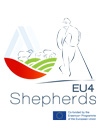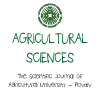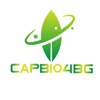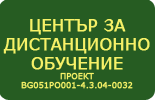Land and water management
|
Course title: |
Land and water management |
|
|
Course code: |
IFLWM |
|
|
ECTS: |
5 |
|
|
In-class hours |
Lectures: |
30 |
|
Laboratory work/Tutorials: |
30 |
|
|
Self-preparation hours |
Practical training: |
- |
|
Other: |
75 |
|
|
Total hours: |
125 |
|
|
Language: |
English |
|
|
Study cycle: |
BSc, Master |
|
|
Semester: |
Winter, summer |
|
|
Faculty: |
Faculty of Economics |
|
|
Name of the lecturer(s): |
Assoc. Prof. Violeta Dirimanova, PhD |
|
|
Mode of delivery: |
Face-to-face, distance learning |
|
|
Prerequisites: |
Farm management, Resource Economics |
|
|
Learning outcomes of the course unit: |
Land and Water Management is designed to present a comprehensive approach to land and water resources management by integrating environmental science (geology, soils, hydrology) and policy (planning and regulatory analysis). The main objectives of the course are to gain awareness of different aspects of land and water management; to show an overview of the main problems of land and water use; to develop an ability to analyze and explain the problems; to learn the tools for understanding and analyzing land and water management problems and to consider and water management policies. The first part of the study course provides knowledge related to land use, types of land use and land property rights; describe resource management regimes (public, private and common property regimes and open access); presents different land reforms, land use planning and land administration and land use policies. The second part of the course provides knowledge related to the impact of technical infrastructure and technology on governance and management of water; irrigation and drainage systems and services and also shows different environmental issues associated with land and water management. In addition, the course provides knowledge on irrigation reforms, landscape water regimes and climate change. |
|
|
Course contents: |
LECTURES: 1. Introduction of the land management – types of goods, resource management regimes and property rights 2. Land policies: public policy and legal relations, type of governance, land administrations and soil management and protection 3. Land reforms: privatization and restitution - case studies 4. Land tenure, land access and land grabbing 5. Adaptive land management and institutional change 6. Soil ecosystem and multifunctional use of soil 7. Introduction in water management - characteristics and governance structure of water and water infrastructures 8. Irrigation and drainage system 9. Collective management of Irrigation and drainage system 10. Water policies and directives 11. Effect of climate changes on water management 12. Water management – water as an economic good, river basic management and integrated water resource management
TUTORIALS : 1. Common property regime – case studies 2. Soil protection in farmland in EU countries 3. Land reforms – case studies from Central and Eastern Europe 4. Land grabbing - case studies from Asia and Africa 5. Risks and uncertainties for adaptive land management 6. Land degradation – case studies 7. Collective action for Irrigation and drainage system – case studies from Central and Eastern Europe 8. Effect of climate changes on water management – case studies 9. Integrated water resource management – case studies |
|
|
Recommended or required reading: |
1. Klaus, D., (2003), Land policies for growth and poverty reduction, A co-publication of the World Banka and Oxford University Press; 2. Kapur, Selim, Eswaran, Hari, Blum, Winfried E.H (2011) Sustainable Land Management, Springer-Verlag Berlin Heidelberg 3. Randolph, J. (2004) Environmental Land Use Planning and Management, Island Press 4. Website links related to land and water management, and also scientific articles related to the course |
|
|
Planned learning activities and teaching methods: |
The main part of the material for Land and Water Management is taught through lectures. The lectures of the teaching course are delivered through Microsoft PowerPoint presentations. The conversations and discussions are used in order to achieve additional knowledge and skills. During the tutorials, the students solve cases and practical examples related to the lectures’ materials. Finally, the students will prepare an assignment and present it. The course is finished with the exam. |
|
|
Assessment methods and criteria: |
Participation in class discussions-10% Assignment - 60% Final written exam- 30% |
|
 - Събития по случай 80-я юбилей на АУ
- Събития по случай 80-я юбилей на АУ











